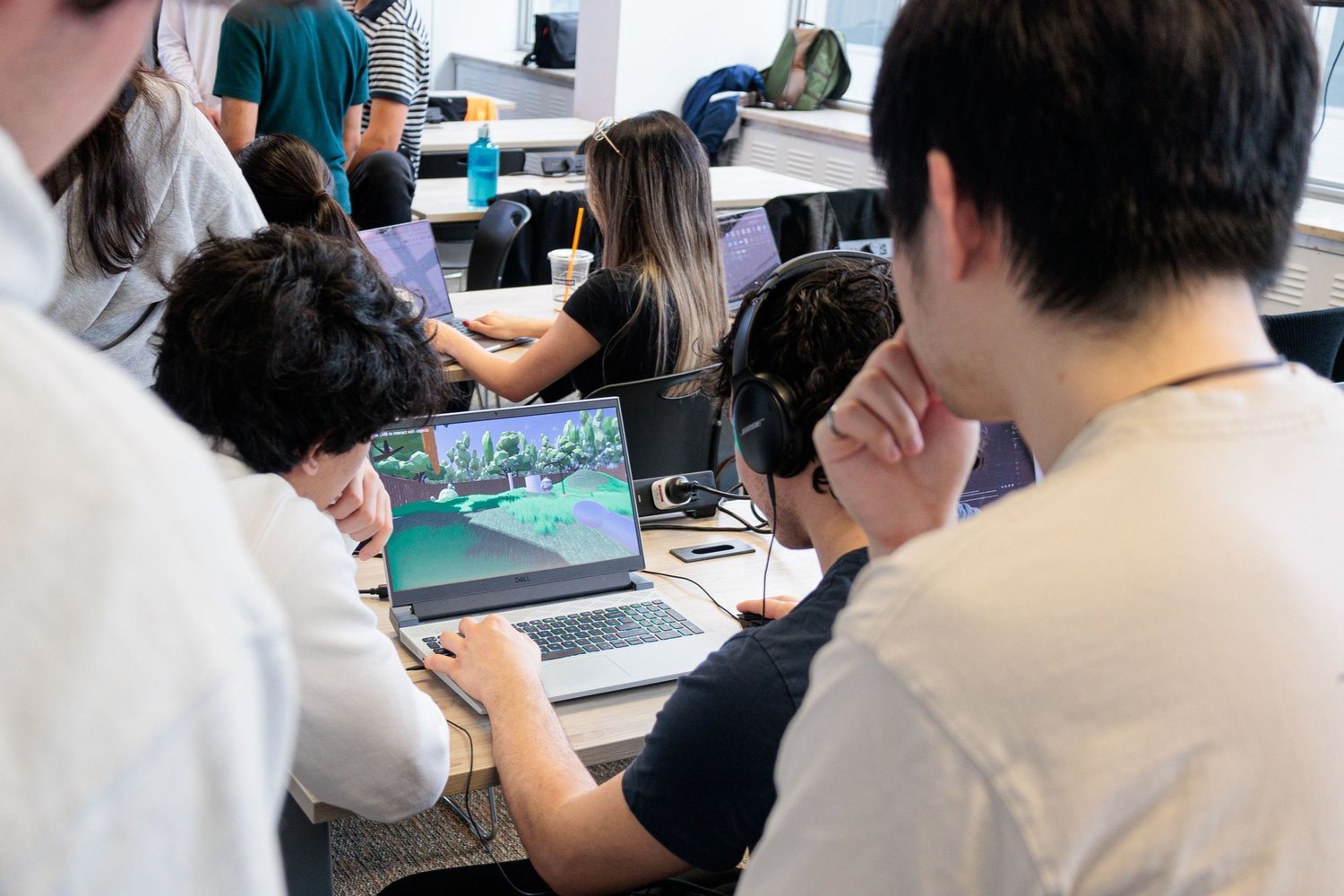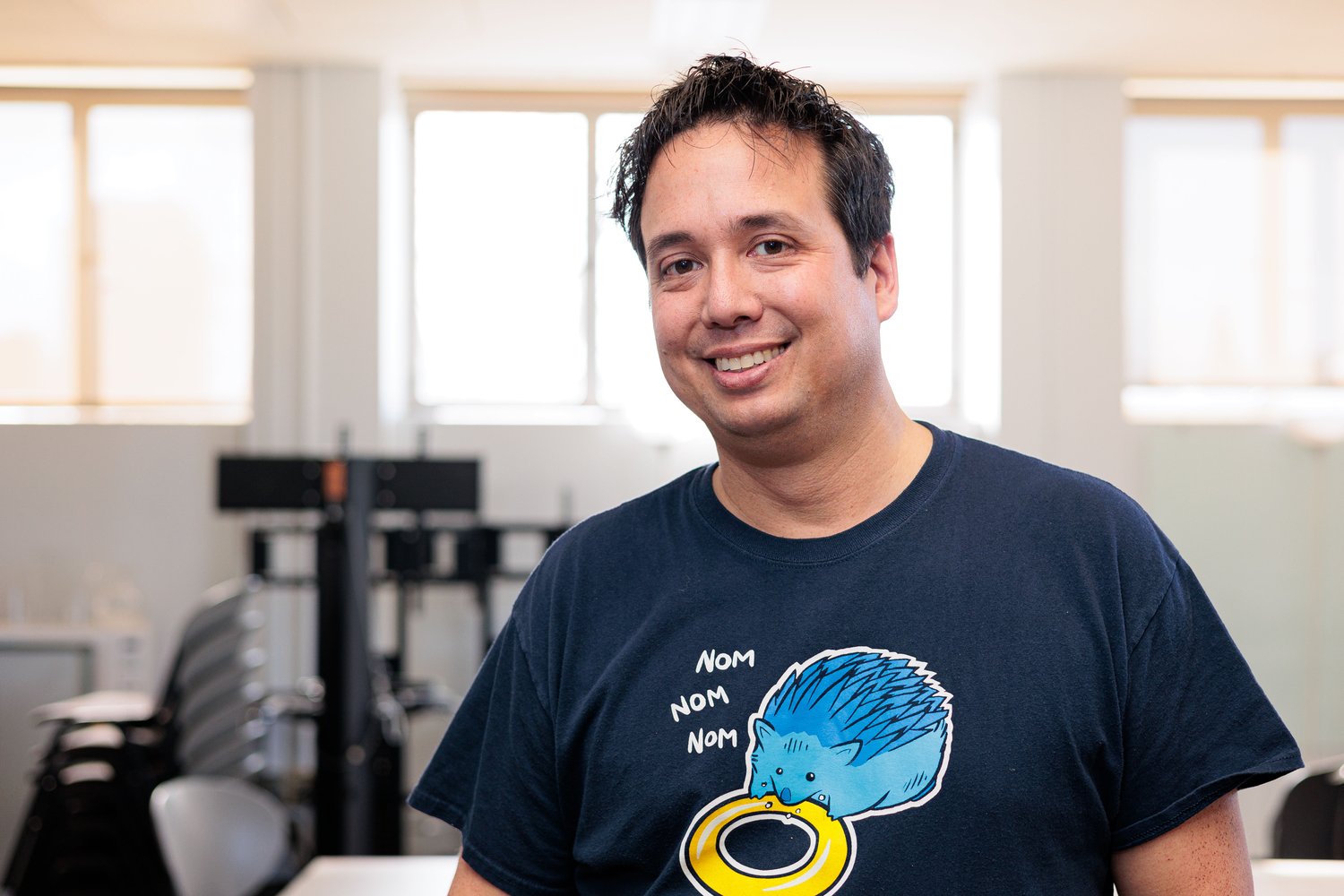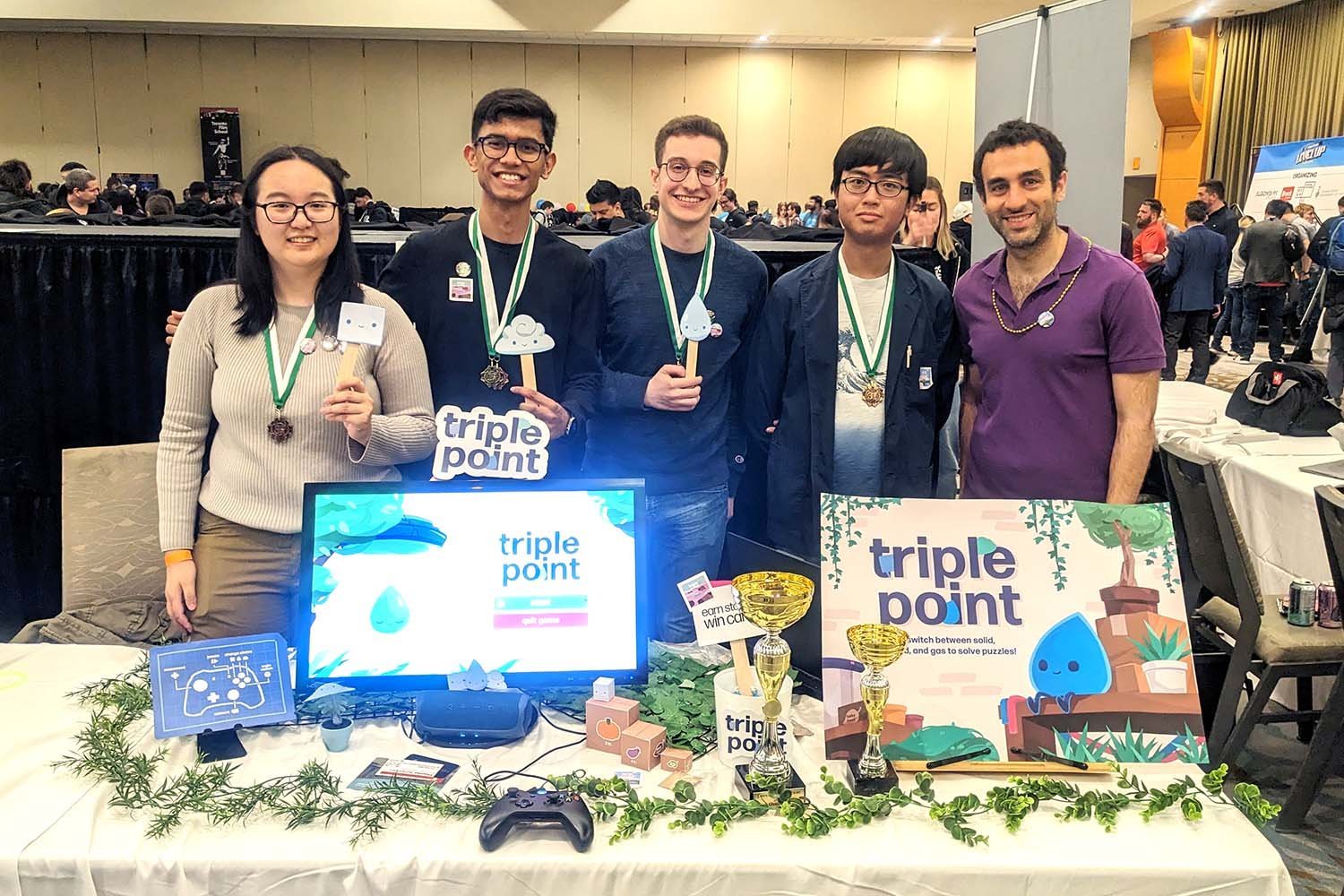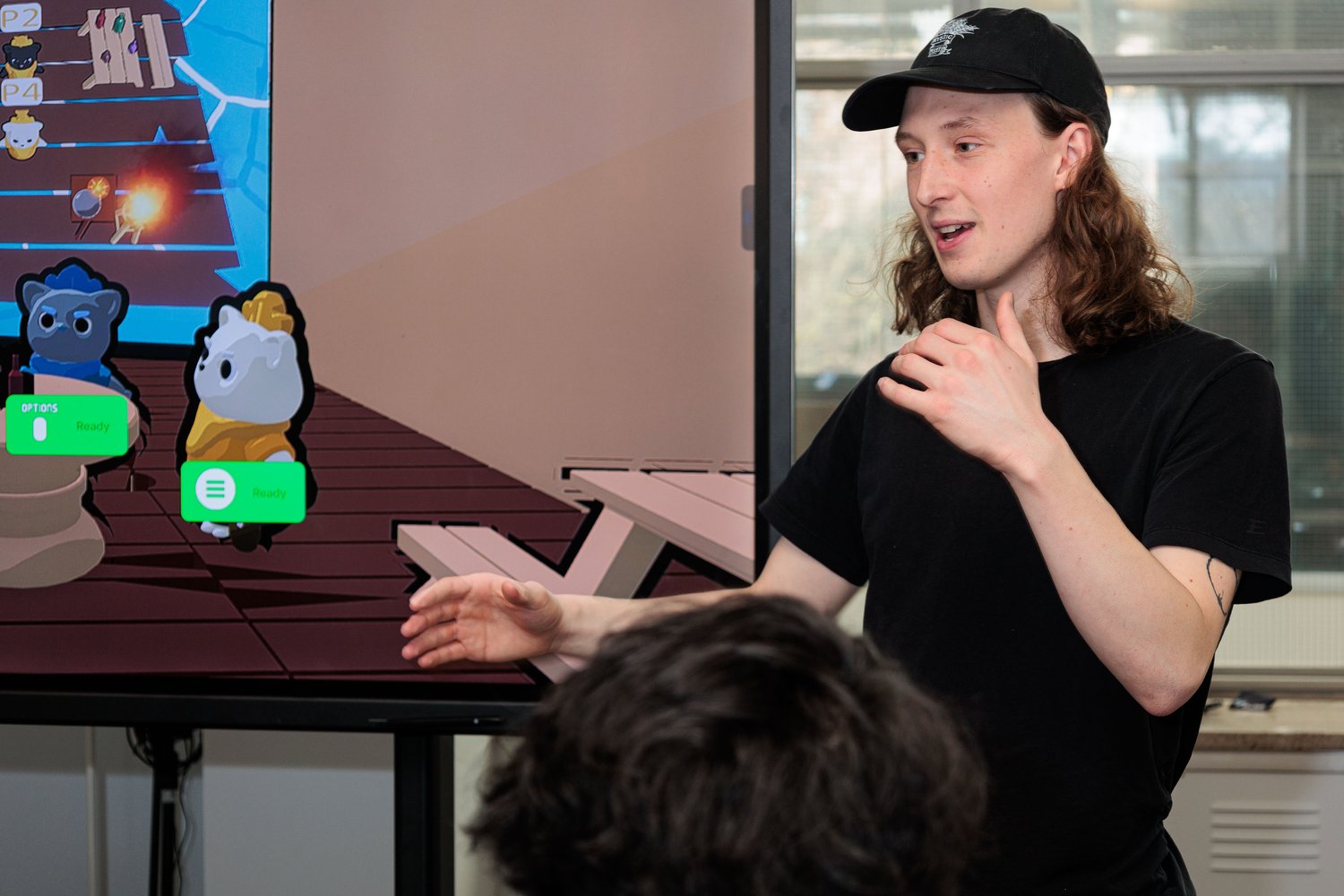Big, loud and noisy.
That’s how Steve Engels describes the Level Up Showcase, an exhibition for student-made video games.
“It’s fun because it’s wall-to-wall games. Everything is flashing and making noises, and it’s filled with people who are very excited about what they’ve made,” says Engels, a professor, teaching stream in the Department of Computer Science in the Faculty of Arts & Science. “It’s all about celebrating student talent and student creativity.”
The event marks the culmination of months-long student projects developing games as part of CSC404: Introduction to Video Game Design, which involves a multidisciplinary collaboration between computer science and Faculty of Music students as well as art programs at Centennial College and OCAD University.
With 10 teams each from the fall and winter terms headed to the showcase, undergraduates get to flex their game design skills in front of their peers, industry professionals and gaming enthusiasts.
The event is expected to draw 100 student teams from 18 Ontario colleges and universities, attracting over 2,000 attendees.

Through playtesting sessions, students in CSC404 have the opportunity to receive feedback on their games ahead of the Level Up Showcase. Photo: Matt Hintsa.
“It’s one thing to produce work for a professor, but when you realize this is part of a larger movement and the world that exists outside of your classroom, then you get a better sense of perspective,” says Engels.
As part of the 12-week investigative inquiry course, students are tasked with presenting novel gameplay with a target audience of people who have been gaming for most of their lives.
“We ask our students to make something unexpected, something that no one would have ever seen before,” explains Engels.
The students in CSC404 apply skills to game design they have gained from other computer science courses, in areas such as software engineering, AI, graphics and human-computer interaction. They learn the main milestones of designing a game; how to work with both fellow computer scientists and artists; and how to create products for the real world with feedback from industry professionals.
“The main focus of the course is to give them a realistic feeling of developing a game from start to finish, while also providing them with the freedom to experiment with game ideas. Some ideas succeed, some fail. You learn lots either way,” explains Engels.
This hands-on experience gave Adam Robinson-Yu insights into the professional gaming world. The 2015 BSc graduate co-created Pitfall Planet, a co-op game where players explore dioramas while collecting treasure and solving puzzles, which won Best Overall Game at the 2015 Level Up Showcase.

“It was fun to work with talented artists from OCAD to create something I couldn’t have made on my own,” says Robinson-Yu. “Unlike the hobbyist projects I’d done before, it was more like a real game production cycle with the planning, prototyping, testing and release all compressed into a single semester. We were busy, but I think we grew a lot as developers and had a pretty good time doing it.”
Working as an independent game developer, Robinson-Yu has gone on to make several games, including the critically acclaimed title, A Short Hike.
“The class and showcase were invaluable in giving me a taste of what it was really like to work on a project from conception through to completion, and to reap the reward of having that project seen and recognized. It was a taste of what it’s like to really work in this industry,” he says.
Sparked by a student’s interest in gaming, Engels created the course in 2007.

“Since then, I’ve ended up becoming the champion for all things related to video game design,” says Engels, who also earned his PhD in educational video game design, a research interest spurred on by teaching the course and running the showcase. “It’s become part of my identity.”
Originally an in-class event, the showcase was later expanded in 2011 in collaboration with Emma Westecott, an assistant professor at OCAD University to include other post-secondary institutions and bring major industry players under one roof.
“The bigger the showcase got, the more it helped validate the students’ work, and the more it became a tentpole of the video game community schedule — everyone looks forward to certain events throughout the year and Level Up is one of them,” says Engels.
The games U of T students are presenting this year vary in thematic and creative elements, from a repeating scene where the player needs to figure out how to break the loop to a serious game that explores the personal trauma of a teen re-education centre.
“Games are a medium for more than just entertainment. They also have the ability to change people’s perspective on the world and have a positive social impact on the player,” notes Engels.

Fourth-year computer science major Chrisee Zhu was part of the team that won Best Overall Game at the 2023 Level Up Showcase for Triple Point, an adventure puzzle game where players control a sentient water creature. She was responsible for the artistic direction of the game, learning about video game graphics, namely rendering pipelines, UV maps, and the inner workings of shaders.
“The course was a ton of work, but it was also lots of fun to work on a game alongside passionate and talented students,” says Zhu. “The showcase was the culmination of our efforts. It’s very rewarding to see people outside the course have fun playing our game.”
Zhu notes Level Up appeals to a diverse audience, whether you’re a seasoned gamer or not.
“The showcase is like a cheese platter containing a wide range of often very novel game concepts, or even an art gallery of interactive portfolio projects. It’s very cool to see how creative students can be.”
The 11th Level Up showcase is co-organized by the University of Toronto’s Department of Computer Science, Algonquin College, Brock University, OCAD University and in partnership with XPGaming.
The free event takes place on April 19, 2024 from 4 to 10 p.m. in the Frontenac room at the Westin Harbour Castle. For more information and to register, visit the Level Up Showcase website.

